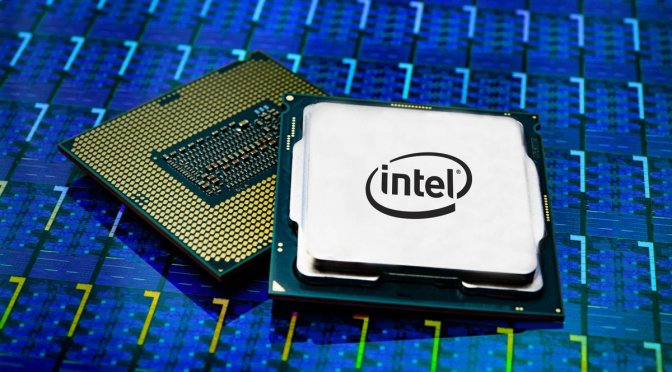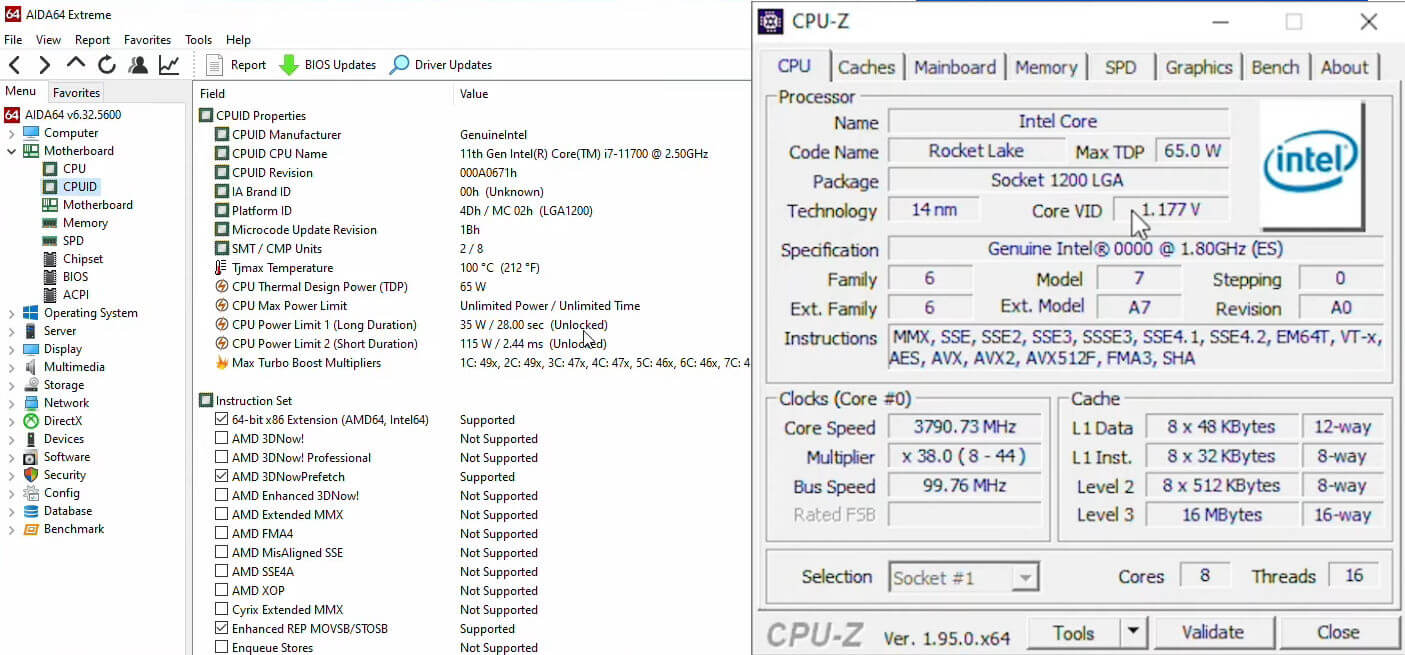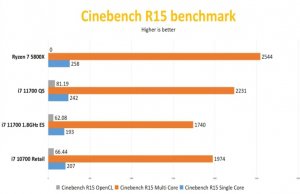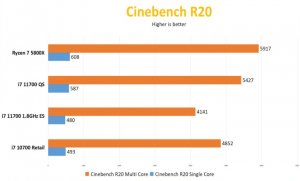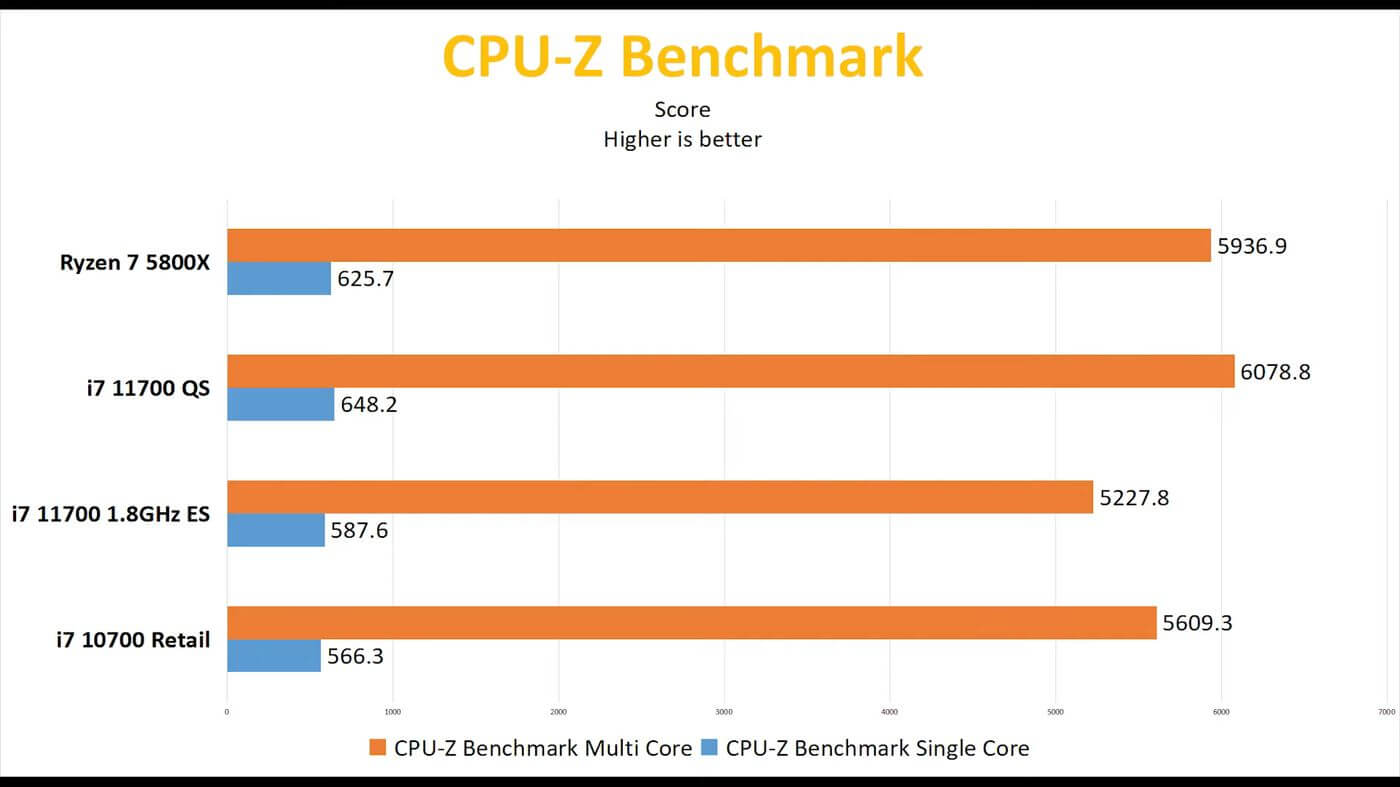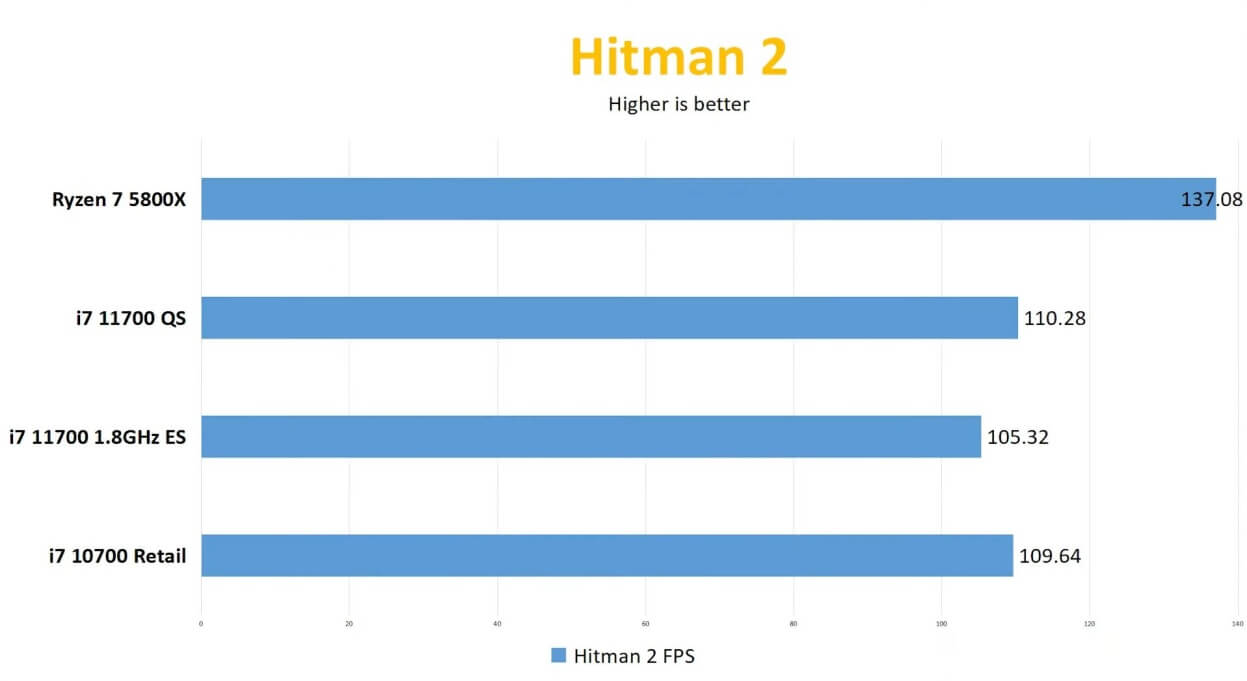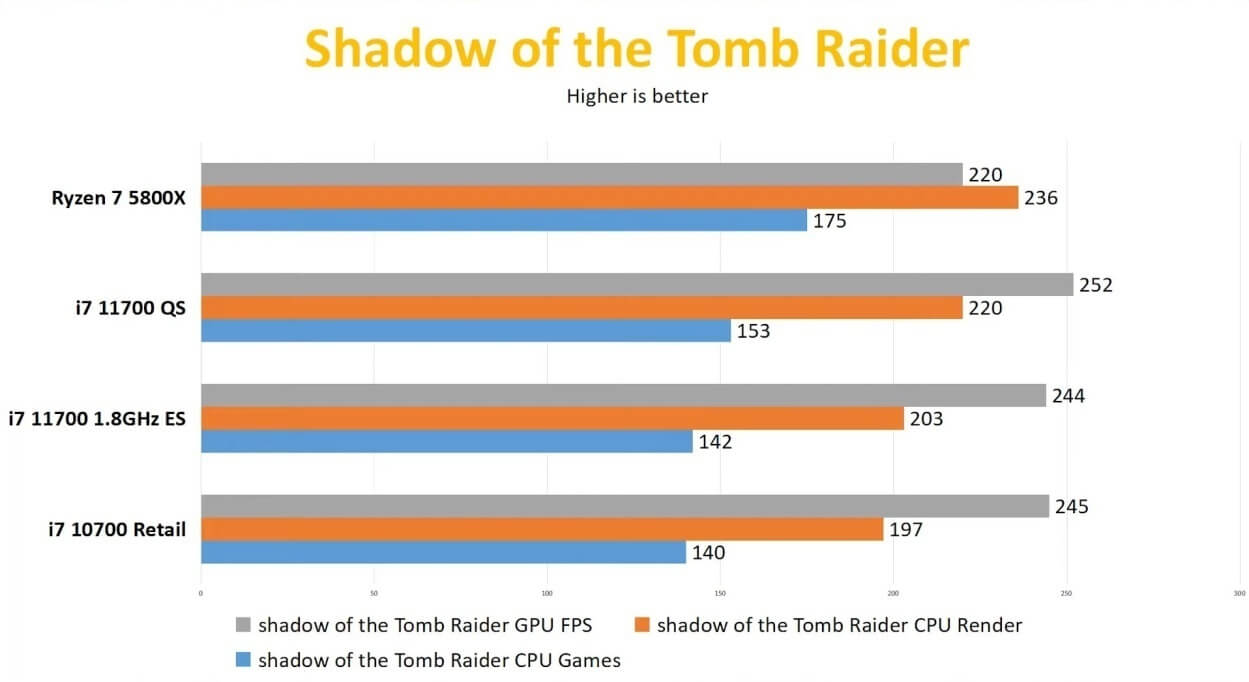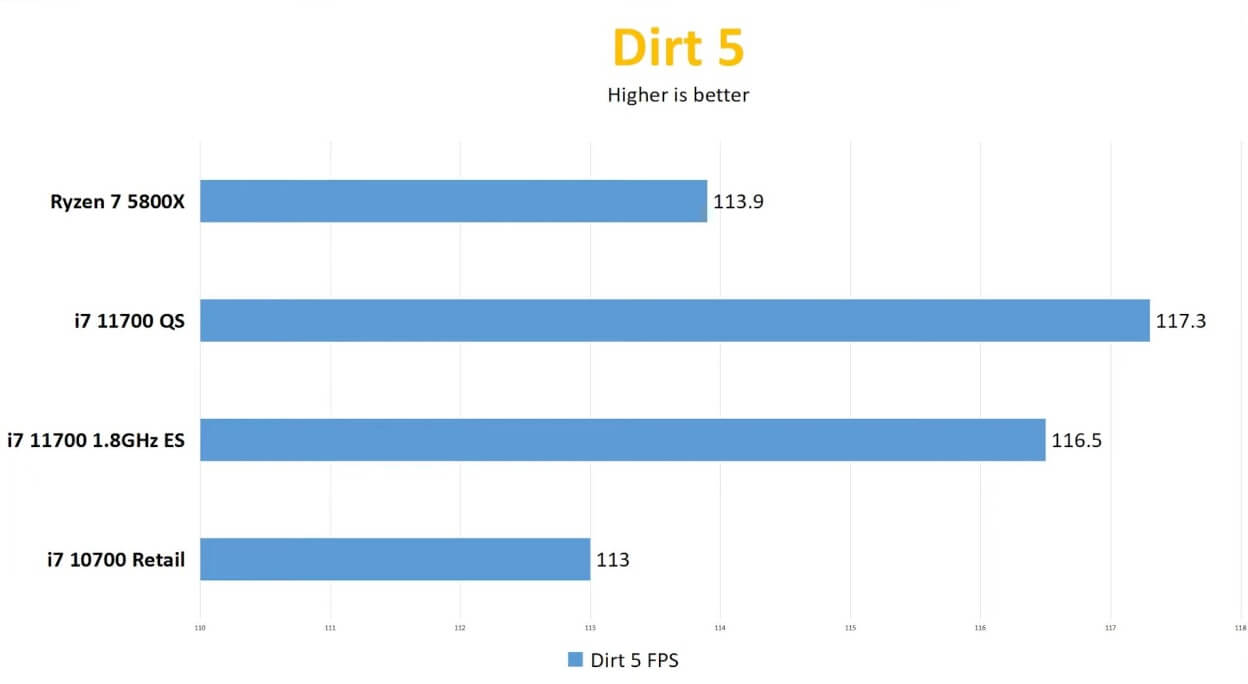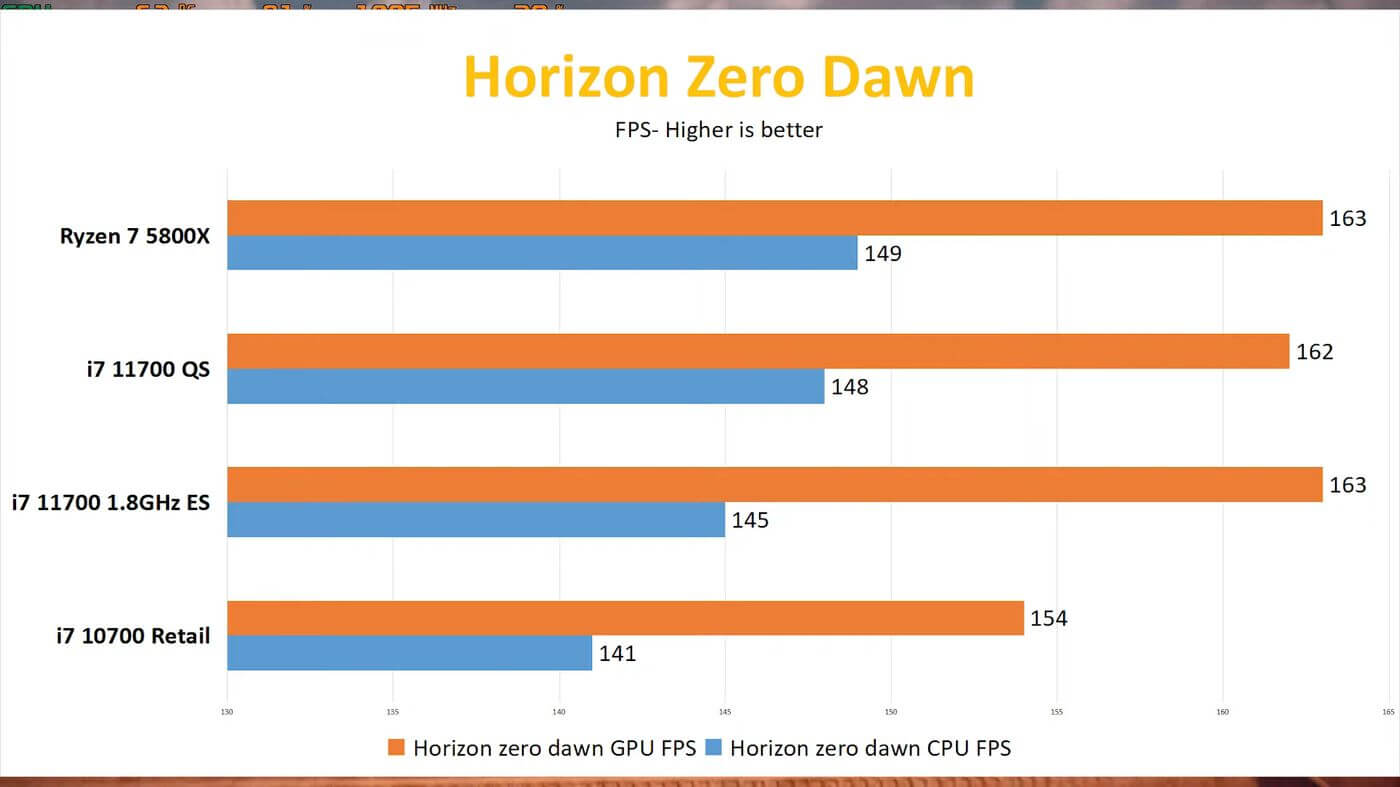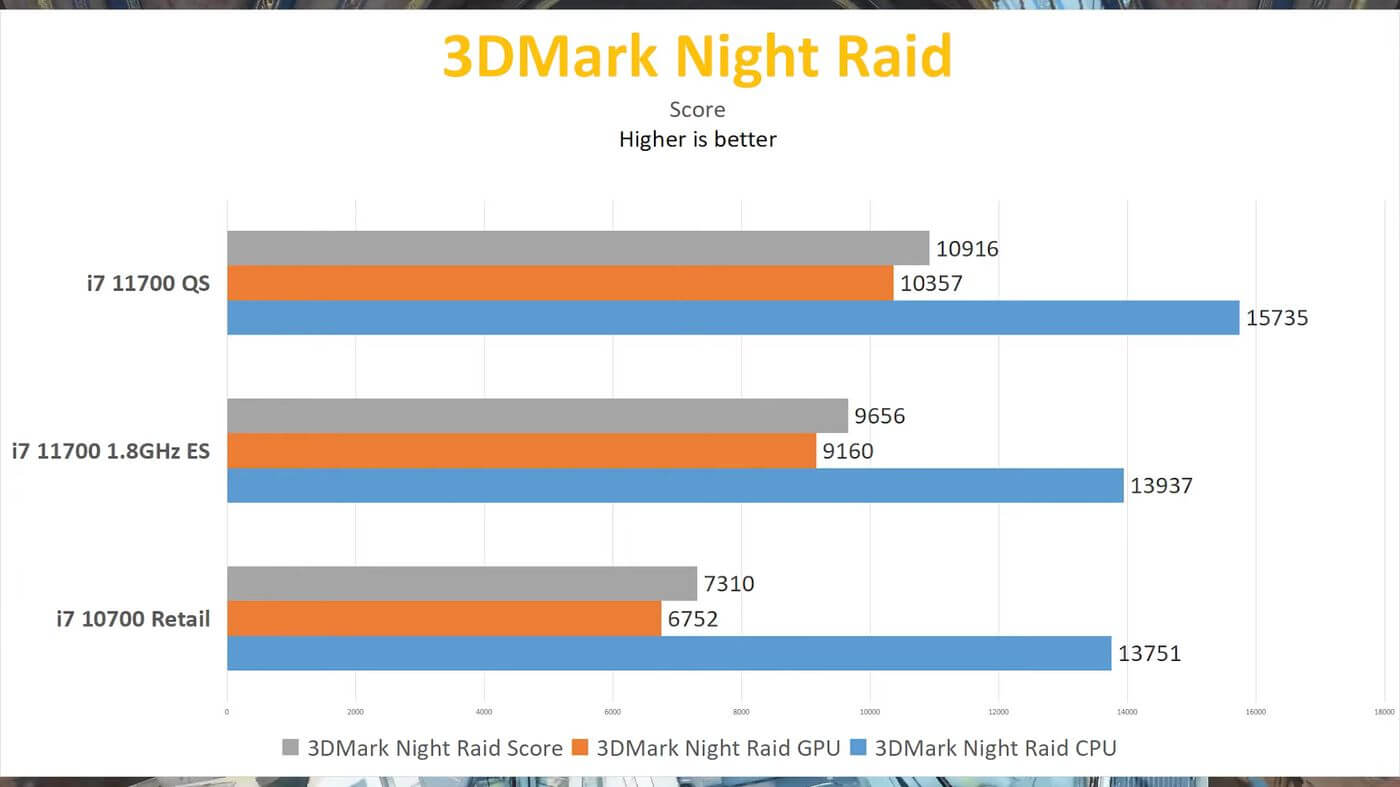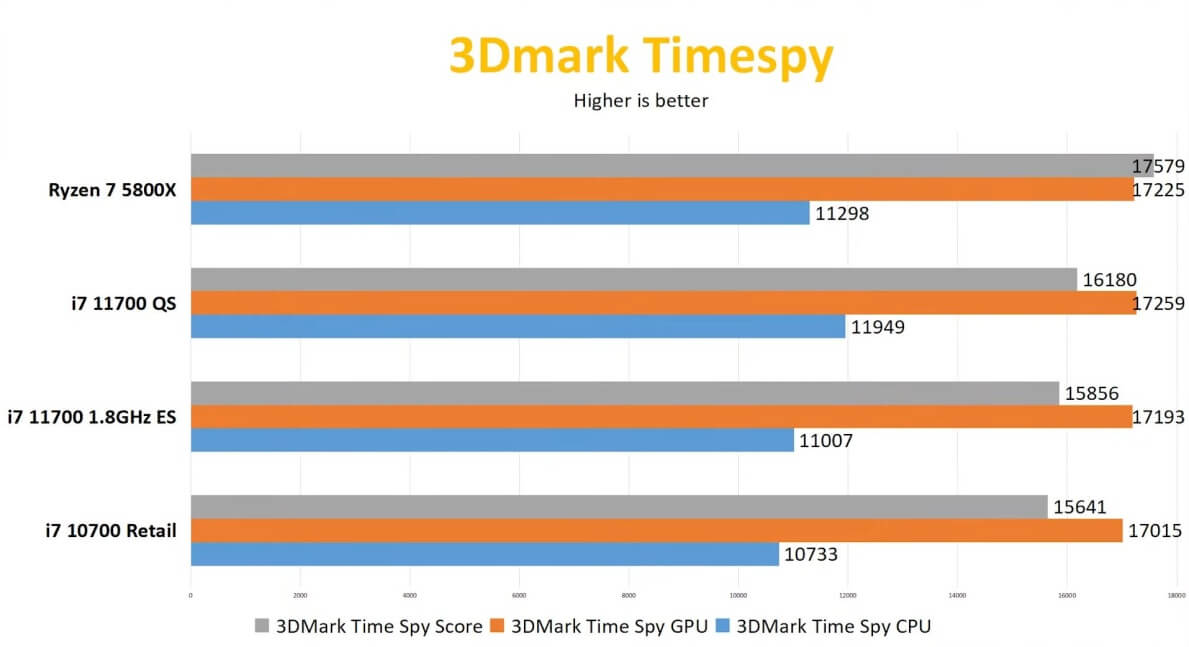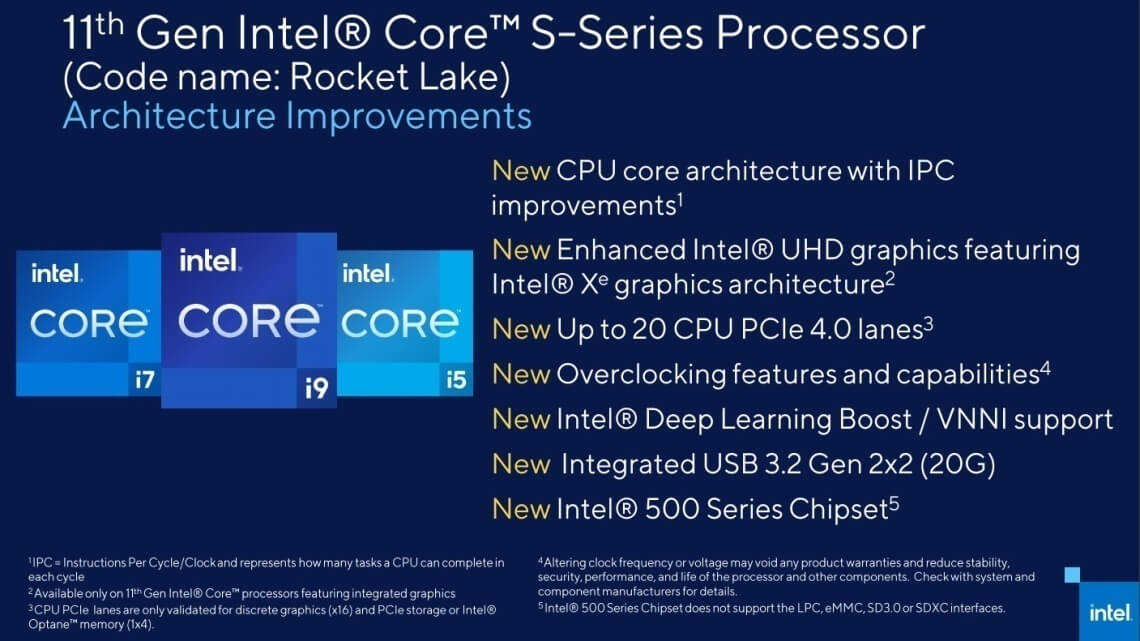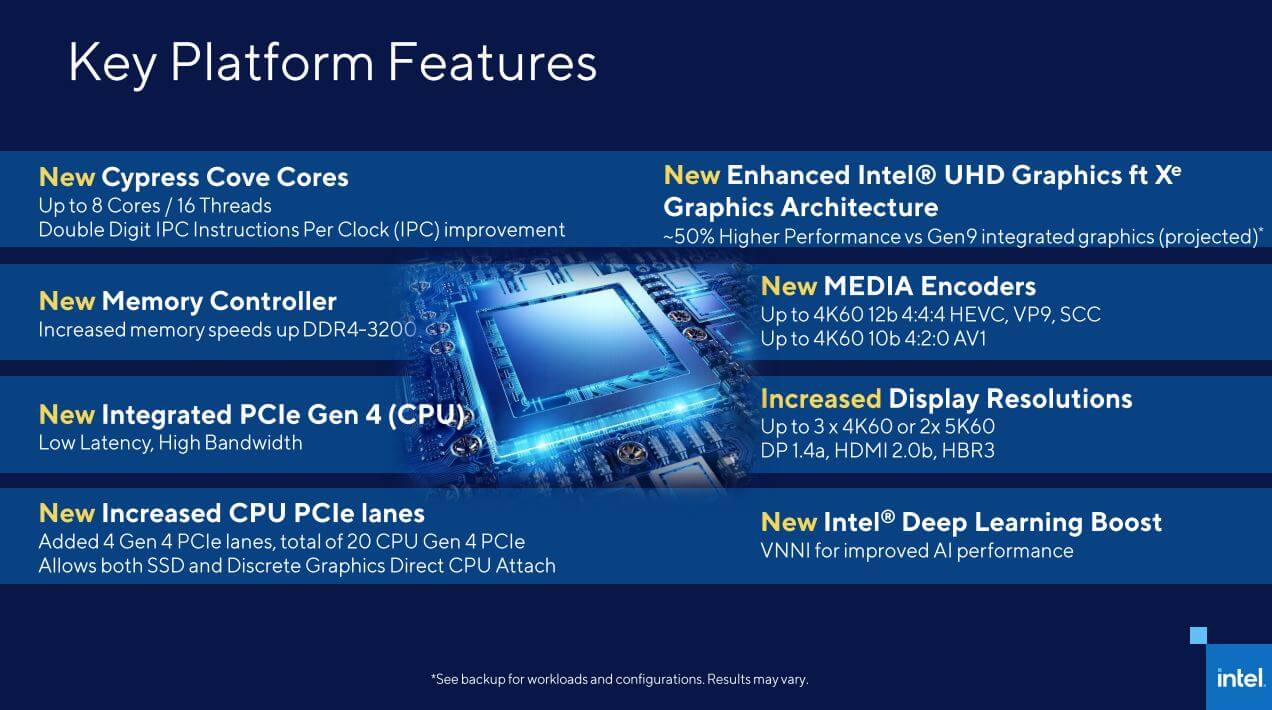At the CES 2021 event, Intel officially announced its 11th gen Rocket Lake-S series of processors during the press briefing. Official announcement slides were leaked as well, which showed almost 14% IPC boost with this new CPU lineup.
Intel’s 11th gen desktop processor lineup will feature both Rocket Lake-S and Comet Lake-S “refresh” CPUs. The 11th generation lineup includes 13 Rocket Lake/RKL and a total of 13 Comet Lake refresh desktop CPUs. Rocket Lake lineup features the core i9, i7 & i5 variants, while the Comet Lake refresh desktop CPUs will come in Core i3, Pentium & Celeron variants.
Now an early review of one Intel Core i7 11700 (non-K) QS sample CPU has been doing rounds lately. We have some early gaming as well as synthetic benchmark results courtesy of Odd Tech Reviews, coming via @momomo_us. The CPU used here for the testing is a qualification sample/QS, which should offer almost similar level of performance as the final “retail” version SKU.
Qualifying samples are basically the final “prototype” chips which are produced before the final retail model enters production, and many reviewers/testers often use these samples for their launch reviews. These qualification samples at least perform much better than early engineering samples/ES.
So that’s why @Odd Tech Reviews tested an engineering sample as well, to get a fair idea about the performance difference gap between the QS and the ES SKU. The review also assesses the Core i7-11700 in view of the Ryzen 7 5800X, AMD’s flagship Vermeer processor.
However, before continuing, I should emphasize that this early review and the benchmark results posted here are still NOT indicative of the final performance which we can expect from the final retail version SKU. As with all early leaks, it’s advisable to wait for independent third-party reviews, and take these results with a grain of salt for the time being.
Moreover, the drivers for this QS chip are still not finalized, so obviously the final performance is subject to change. Coming to the specs, the Core i7-11700 non-K qualifying sample features 8 Cores and 16 threads with a 2.9GHz base frequency and a 4.4GHz turbo boost frequency. It is a 65W CPU with hyperthreading (16-threads).
The CPU also has a 115 W Power Limit 2 state (PL2) with a 28-second Turbo Time Parameter (Tau). While the Core i7-11700 is a locked non-K CPU, it’s PL and Tau values can still be modified in the BIOS settings.
For the test bench, the YouTuber used a Z590 chipset motherboard paired with G.Skill Trident Z DDR4 3200MHz CL14 RAM, and a 1TB WD Black NVMe SSD.
To compare the i7 11700 QS results, three other CPUs were also tested: the AMD Ryzen 7 5800X, a core i7 11700 Engineering Sample and a current 10th gen i7-10700 retail CPU. I won’t be going into all the benchmark details posted by the tester, but rather highlight some of the important ones, especially gaming scores.
Kindly watch the full video for more details.
Coming to the Cinebench R20 and R15 scores, the Intel Core i7 11700 QS tries to close the gap with the RX 5800X CPU with just 500 points slower in Cinebench R20, and roughly 300 points in the R15 benchmark.
The AMD 5800X CPU happens to be 5% faster than the i7 11700 QS in the single-core test, and 15% faster in the multi-core test.
When it comes to the CPU-Z test results, the 11700 QS CPU is 2.4% ahead of the Ryzen 5800X in the multi-threaded test, and 3.5% in the single-core test.
Coming directly to the gaming scores, the Intel Core i7 11700 CPU performs slightly better here and actually competes with the AMD RX 5800X processor, winning in some titles while losing in others.
The CPU was paired with an Nvidia RTX 3080 GPU; however, we don’t know the resolution that was used for the testing. So we have no idea how bottlenecked the GPU might be.
First up is Hitman 2, and as you can see the AMD Ryzen RX 5800X CPU takes the lead by quite a huge margin, 137.08 FPS vs 110.28 FPS on the Rocket Lake QS.
In Shadow of the Tomb Raider, the Intel Core i7 11700 QS CPU takes the performance lead on GPU FPS but not on the CPU FPS, which happens to be a contradictory situation.
In Dirt 5, the Intel Core i7 11700 is head of the AMD Ryzen processor by just 5 frames.
In Horizon Zero Dawn, both the CPUs offer a similar level of performance.
Next up is the 3DMark Night Raid benchmark which was used to test the new Intel Xe “integrated graphics” built into the Rocket Lake i7-11700 CPU. From the results posted, we can see that the Intel Xe iGPU was on average 30-40% faster than the previous-gen UHD graphics 630, found on the core i7-10700 Comet Lake CPU.
So we can expect better gaming performance on Rocket Lake’s iGPU as well, which is good news for casual gamers.
Finally, when it comes to the popular 3Dmark Timespy benchmark, the CPU score of the Intel part is slightly higher than the Ryzen 5800X’s score.
While these benchmarks showcase the performance of the new Rocket Lake CPU, the results are still inconclusive at best. Since this is a qualifying unit, with unfinished drivers and a buggy L3 cache as well, the final retail performance results are going to vary.
There also appears to be a major bug affecting Intel’s microcode for these new Rocket Lake chips, which in turn is significantly hampering the performance of the L3 cache. In AIDA64 the L2 cache is about 50% faster in read and copy tasks, but the L3 cache is slower with a performance drop of up to 20%.
It remains to be seen whether this will be ironed out when the final retail version hit the shelves. As reported now by Wccftech, Rocket Lake 11th gen core family will be officially unveiled on 16th March 2021, and the Sales/Review embargo ends on 30th of March 2021.
Rocket Lake-S desktop platform should also be the last CPU architecture to be based on an advanced 14nm process node. Comet Lake-S was also fabbed on this aging process node, which has held Intel back in terms of IPC uplift and efficiency gains over AMD’s Ryzen lineup.
RKL processor family is expected to share the same socket and motherboard compatibility as the current 10th Gen Comet Lake processors, thus providing an upgrade path even for those rocking the flagship Core i9-10900K Comet lake CPU.
Rocket Lake-S will be housed on the 500-series motherboards. Although the Rocket Lake-S lineup will be the last to feature the LGA1200 socket and the Z490 chipset, Intel is planning a full range of chipsets, including workstation W580, high-end gaming Z590, H570, and budget-oriented B560 and H510 series. The current 400-series motherboard chipsets will also support these upcoming SKUs after a BIOS update.
Intel has also broadened the DMI interface, which connects the processor to the platform controller hub (PCH), from x4 to x8.
John Bonini (VP and GM of Client Computing Group Desktop, Workstation, and gaming at Intel) has also confirmed that the 11th gen core series of processors codenamed Rocket Lake will be Intel’s first lineup to support the PCI-Express gen 4.0 interface, a feature which has been seemingly missing in Intel’s client desktop CPU platform for quite some time.
Rocket Lake will deliver desktop users up to eight cores and sixteen threads on the high-end, which means two cores and four threads less than the current Comet Lake processor lineup. But the reduction in core count could also mean that Intel plans to rely on increased single-threaded performance, thus boosting overall system performance through single-threaded gains.
Single-thread performance will help Intel to compete more in the CPU market segment, even if AMD can deliver higher core count SKUs. Not all applications or tasks are highly multi-threaded in nature, which makes the single-threaded performance all the more important.
But you should also note that even though Intel touts IPC gains of up to 19%, and full support for the PCIe 4.0 gen interface, the Rocket Lake-S platform is the last to use the aging LGA 1200 socket, so obviously your upgrade options are going to be limited (should you plan to buy a new INTEL CPU in near future).
So the LGA 1200 socket will be considered as obsolete and short-lived by many once the next-gen LGA 1700 socket platform arrives with the new Alder Lake-S CPU lineup.
Stay tuned for more tech news!
Hello, my name is NICK Richardson. I’m an avid PC and tech fan since the good old days of RIVA TNT2, and 3DFX interactive “Voodoo” gaming cards. I love playing mostly First-person shooters, and I’m a die-hard fan of this FPS genre, since the good ‘old Doom and Wolfenstein days.
MUSIC has always been my passion/roots, but I started gaming “casually” when I was young on Nvidia’s GeForce3 series of cards. I’m by no means an avid or a hardcore gamer though, but I just love stuff related to the PC, Games, and technology in general. I’ve been involved with many indie Metal bands worldwide, and have helped them promote their albums in record labels. I’m a very broad-minded down to earth guy. MUSIC is my inner expression, and soul.
Contact: Email

